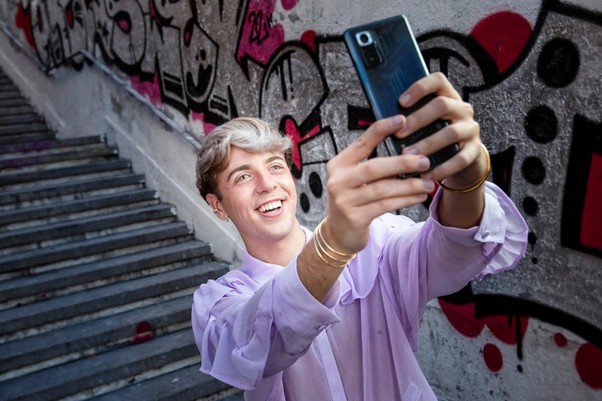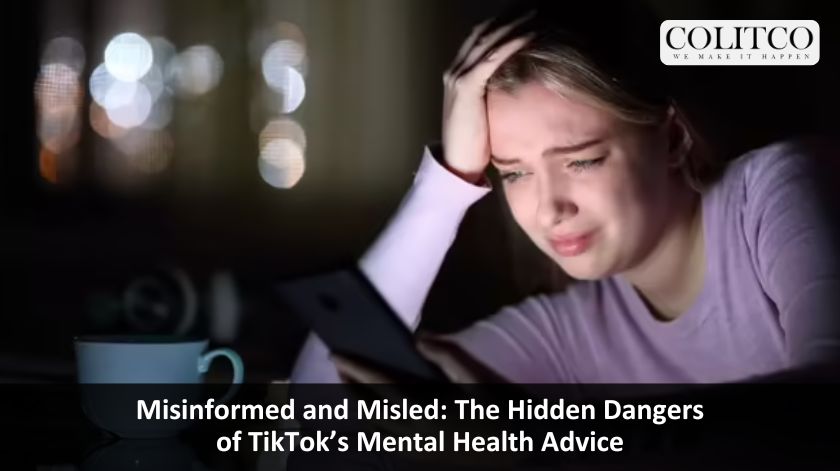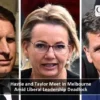Mental health TikToks mostly contain misinformation

TikTok has emerged as a significant platform for health discussions, particularly among younger audiences. However, recent investigations have raised concerns about the accuracy of the information being shared. A study highlighted by The Guardian revealed that over half of the top 100 TikTok videos under the #mentalhealthtips hashtag contained some form of misinformation .
The Rise of Mental Health Content on TikTok
The accessibility and relatability of TikTok content have made it a go-to source for health advice. Users often share personal experiences, coping strategies, and wellness tips in short, engaging videos. This trend has contributed to destigmatizing health discussions and fostering supportive communities online.
However, the platform’s algorithm tends to amplify content that garners high engagement, regardless of its accuracy. This dynamic can inadvertently promote misleading or oversimplified advice, potentially impacting vulnerable viewers.
Common Misinformation Trends
Experts have identified several recurring themes in misleading health content on TikTok:
- Oversimplified Solutions: Videos suggesting quick fixes, such as eating an orange in the shower to alleviate anxiety, lack scientific backing and can trivialize complex health issues.
- Unverified Supplement Claims: Recommendations for supplements like saffron or magnesium glycinate as anxiety cures are often presented without credible evidence, potentially leading users to self-medicate without professional guidance.
- Misuse of Diagnostic Terms: Some content inaccurately labels common emotional experiences as symptoms of serious health disorders, which can lead to unnecessary self-diagnosis and anxiety.
- Promotion of Unproven Therapies: Claims about healing trauma within an hour or other rapid recovery methods are not supported by established psychological practices and can set unrealistic expectations for recovery.
The Impact on Viewers

Rubén Avilés, a ‘tiktoker’ photographed on the Gran Vía in Madrid
The spread of misinformation on TikTok can have several adverse effects:
- Self-Diagnosis: Users may identify with symptoms described in videos and self-diagnose without consulting professionals, leading to mismanagement of their mental health.
- Delayed Professional Help: Belief in quick fixes or self-help strategies may deter individuals from seeking necessary professional treatment.
- Stigmatization: Misrepresentation of mental health conditions can perpetuate stigma and misunderstandings about mental illnesses.
Expert Opinions
Mental health professionals emphasize the importance of accurate information dissemination. Dr. David Okai, a consultant neuropsychiatrist, noted that the misuse of therapeutic language on TikTok can blur the lines between normal emotional experiences and mental illness, leading to confusion and potential harm .
Similarly, Amber Johnston, a psychologist accredited by the British Psychological Society, highlighted that while some videos contain elements of truth, they often overgeneralize and minimize the complexity of conditions like PTSD.
TikTok’s Response
In response to these concerns, TikTok has stated that it collaborates with health organizations like the World Health Organization and the NHS to promote reliable information. The platform claims to proactively remove 98% of harmful misinformation before it’s reported .
Also Read: ATO Urges Caution as Millions Eye $1,519 Tax Refund Amid Rising Pressures
Navigating Mental Health Content Online
For users seeking mental health support online:
- Verify Sources: Consult information from reputable organizations and certified professionals.
- Be Skeptical of Quick Fixes: Approach content promising rapid solutions with caution.
- Avoid Self-Diagnosis: Use online information as a starting point, not a diagnostic tool.
- Seek Professional Help: If experiencing mental health issues, consult a qualified healthcare provider.
Conclusion
While TikTok can be a valuable platform for sharing experiences and raising awareness about mental health, it’s crucial to approach the content critically. Users should prioritize information from credible sources and seek professional guidance when needed to ensure accurate understanding and effective management of mental health.












